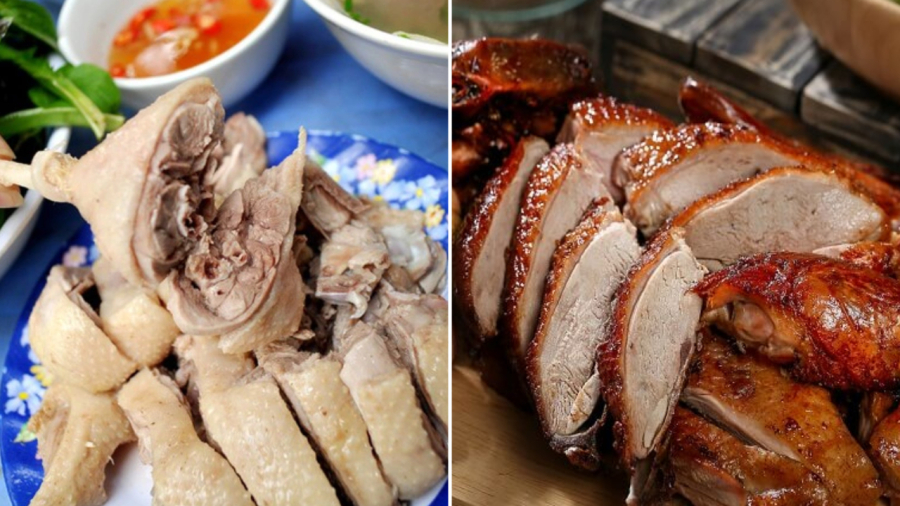Duck meat is a popular food choice in Vietnam, featuring in dishes served at both casual eateries and upscale restaurants. One of the simplest and most beloved ways to prepare duck is by boiling it. However, there are also numerous other delicious ways to cook duck, including roasting, grilling, stewing with fermented soybean paste, sour soup with duck, galangal duck, and faux-cured duck…
According to poly-herbalist Bui Dac Sang from the Vietnam Academy of Science and Technology, duck meat is considered sweet and slightly salty in Eastern medicine. It has a cooling nature and is believed to nourish the yin and support digestion. It is also thought to be beneficial for treating cardiovascular diseases and tuberculosis.
Modern medical research has revealed that 100 grams of duck meat provides 25 grams of protein, along with significant amounts of calcium, phosphorus, iron, vitamin A, B-complex vitamins, vitamin D, and vitamin E.
Despite its nutritional benefits, there are a few considerations to keep in mind when consuming duck meat.
Foods to Avoid When Eating Duck Meat
– Chicken Eggs
According to herbalist Bui Dac Sang, chicken eggs and duck meat should not be consumed together as they may negatively impact the body’s vital energy.
– Turtle Meat
Combining turtle meat and duck meat in the same meal can lead to a condition known as “excessive yin and deficient yang,” resulting in symptoms such as edema and diarrhea.

Duck meat is delicious and nutritious, but it should not be paired with certain foods.
– Soft-shell Turtle Meat
Bui Dac Sang warns that consuming duck meat and soft-shell turtle meat together can cause diarrhea and edema. Additionally, the high protein content of duck meat and the presence of substances in soft-shell turtle meat that alter proteins can reduce the nutritional value of both foods.
– Plums
Plums and duck meat are not a good combination. In Eastern medicine, duck meat is believed to have a cooling nature and help reduce body heat. On the other hand, plums can have a heating effect on the body. Consuming these two foods together can lead to indigestion, abdominal distension, and intestinal heat, which are detrimental to health.
Who Should Avoid Eating Duck Meat
– People with a Cold, Gout Patients
According to Eastern medicine, duck meat has a cooling nature. Therefore, people suffering from a cold should avoid consuming duck meat to prevent worsening their condition.
Duck meat has a high purine content, which can increase uric acid levels in the body. For this reason, it is not recommended for individuals with gout.

In certain situations, it is advisable to limit duck meat consumption to maintain good health.
– Post-Surgery Patients
People who have recently undergone surgery are advised to avoid duck meat as it may slow down the healing process of wounds.
– Individuals with Poor Digestion
Due to its cooling nature and high protein content, duck meat may cause discomfort for those with poor digestion.
– People with Bone and Joint Conditions
Individuals with bone and joint conditions are advised to limit their consumption of cooling foods, including duck meat, to prevent further pain and discomfort in the joints.
- Duck meat and sugar-rich foods: The high fat content of duck meat can slow down digestion, causing a rapid increase in blood sugar levels when combined with sugary treats, leading to weight gain and an increased risk of diabetes.
- Duck meat and dairy products: Combining duck with dairy can lead to digestive issues as both are high in protein and fat, putting a strain on the digestive system.
- Duck meat and beer: The high purine content of duck meat, combined with the alcohol and purines in beer, can lead to a significant increase in uric acid levels, potentially causing gout or kidney stone formation.
- Duck meat and radishes: Radishes are known to have a cooling effect on the body, which can counteract the warming properties of duck meat, potentially leading to digestive issues and an imbalance in the body’s energy flow.





































